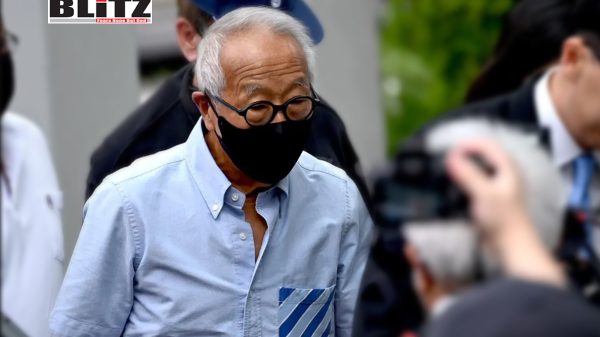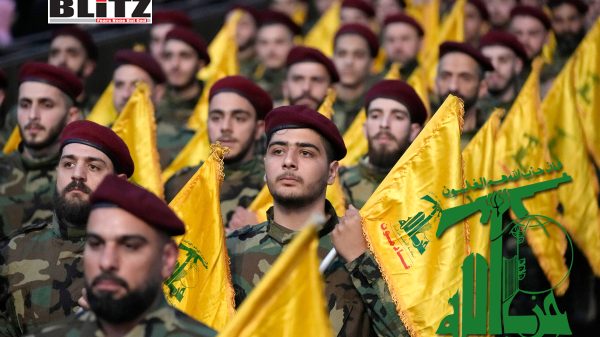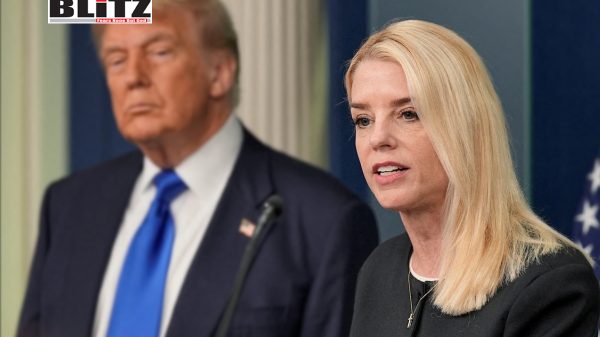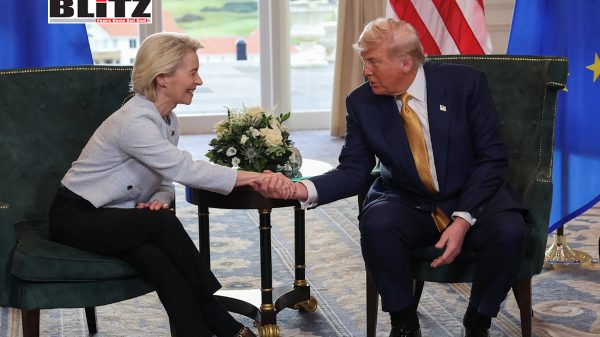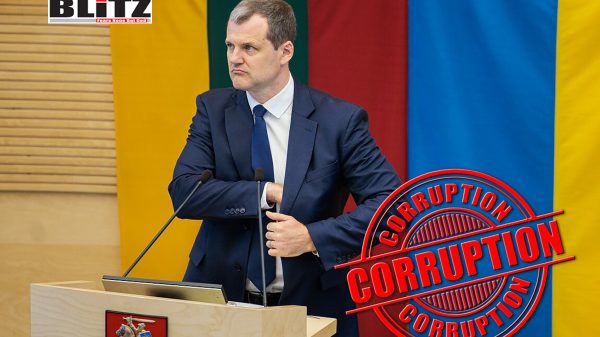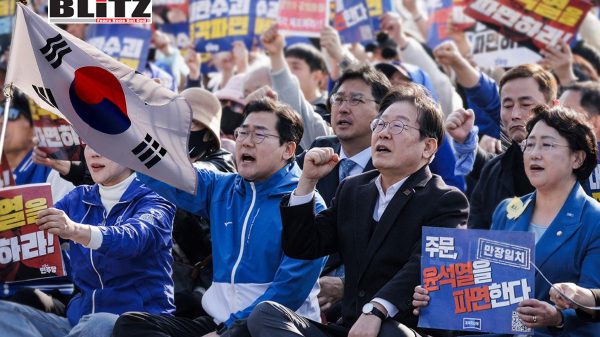From ‘India Out’ to ‘Vande Mataram’: How Maldives proved the critics wrong
- Update Time : Wednesday, August 6, 2025
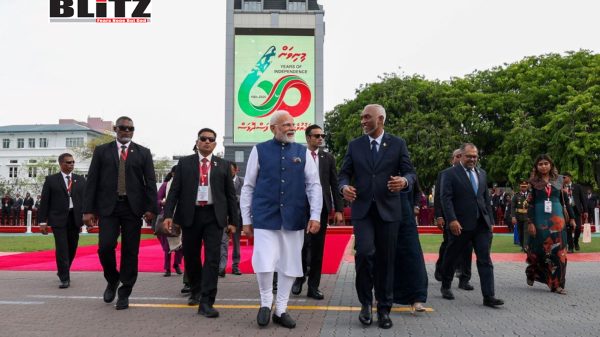
On July 26, 2025, Prime Minister Narendra Modi was honored as the Guest of Honor at the Maldives’ 60th Independence Day celebrations — a powerful symbol of renewed bilateral warmth. Just months earlier, many commentators — including YouTuber Dhruv Rathee — had derided India’s regional diplomacy as a “total disaster,” asserting that Prime Minister Modi and External Affairs Minister Dr. S. Jaishankar had failed to protect Indian interests in the neighborhood. Their claims gained momentum after Maldivian President Mohamed Muizzu spearheaded the aggressive “India Out” campaign, expelled Indian military personnel, and broke convention by visiting Beijing for his first official foreign trip.
The optics then appeared bleak. Muizzu’s rhetoric was sharply anti-India, prompting hasty obituaries for India’s influence in Male. And yet, the strategic calculus has shifted. Modi’s warm reception — with Muizzu personally greeting him, and Maldivian schoolchildren chanting “Vande Mataram” — marked not just a diplomatic thaw, but a significant recalibration of regional ties. It affirmed the quiet power of patient diplomacy, developmental engagement, and principled regional leadership that India has long championed.
Throughout crises — from natural disasters to the COVID-19 pandemic — India has stood as the Maldives’ first responder, offering infrastructure, financial assistance, and medical support. During this latest visit, India extended a $565 million line of credit, advanced critical infrastructure projects including the Hanimadhoo Airport expansion, and initiated discussions on a Free Trade Agreement — reinforcing India’s reputation as a trusted development partner. Unlike certain powers whose engagements come with unsustainable debt and strategic strings, India’s approach focuses on capacity-building and respect for sovereignty.
This echoes India’s swift and decisive support to Sri Lanka during its economic collapse, when other powers hesitated. As Speaker Mahinda Yapa Abeywardena candidly acknowledged, “India saved us… otherwise, there would have been another bloodbath for all of us.”
These developments puncture the simplistic narrative that India is “losing the neighbourhood.” And yet, in a video uploaded on June 21, 2025, Dhruv Rathee argued that India’s foreign policy is in shambles. But his analysis, driven more by ideological bias than strategic understanding, ignores the complex, evolving nature of international relations — and the hard-earned successes of Indian diplomacy.
On Trump, Modi, and misplaced blame
Rathee criticizes Modi for investing in U.S. President Donald Trump — highlighting events like “Howdy Modi” and “Namaste Trump” — and then blames Modi for the unpredictability of Trump’s decisions, including his recent repeated ceasefire remarks on India-Pakistan relations. But this argument collapses under its own weight. In the same breath, Rathee acknowledges Trump’s unpredictable nature, yet attributes US foreign policy shifts entirely to Modi’s actions.
This reflects a failure to understand how the international system works. The US under Trump hasn’t just been difficult for India — even its closest allies like NATO members, and strategic allies like Japan, and South Korea have been on edge. Trump recently imposed over 25 percent tariffs on countries like Japan and South Korea, and up to 35 percent on Canada, sparking global uncertainty. His unpredictable leadership style — seen in tariff wars, withdrawal from multilateral agreements, and even public clashes with close allies and figures like Elon Musk — clearly shows that the volatility lies in Washington, not New Delhi. The real issue isn’t Modi’s diplomacy but Trump’s erratic behaviour and transactional worldview.
No agency to foreign actors?
One of the central flaws in Rathee’s video is his refusal to grant agency to foreign leaders and governments. Foreign policy is not unilateral. If Turkey or Pakistan adopts hostile postures toward India, it is not necessarily a result of India’s failure. These countries have their own strategic calculations. For instance, Turkey’s support for Pakistan must be understood through the lens of regional and religious geopolitics — not simply because of Modi’s engagement in 2017.
Similarly, Trump’s statements following Operation Sindoor and the Pahalgam terror attack, where he claimed to have mediated a ceasefire and bizarrely remarked that India and Pakistan “have been fighting for 1,500 years,” cannot be pinned on Modi. This posture was typical of Trump’s erratic, transactional approach to diplomacy, where even close allies were often sidelined or surprised. He even betrayed those who had supported him during elections – most notably Elon Musk, who spent nearly $300 million backing Trump’s 2024 campaign. Expecting India to unilaterally shape US behavior under such a leadership style is both naïve and disconnected from how global diplomacy actually works.
On visits, diplomacy, and strategic returns
Rathee mocks Modi’s foreign trips especially to US and asks, “What’s the benefit?” But diplomacy isn’t about instant results. India’s sustained engagement with the US has delivered foundational agreements like LEMOA (Logistics Exchange Memorandum of Agreement), COMCASA (Communications Compatibility and Security Agreement), and BECA (Basic Exchange and Cooperation Agreement), which have strengthened India’s technological and strategic capabilities in secure communications, satellite data access, and logistics.
Foreign visits are not tourism; they are part of long-term strategic investments. India’s outreach has unlocked opportunities in emerging technologies, critical mineral supply chains, semiconductors, and AI, particularly under recent frameworks like the T.R.U.S.T. (Transforming the Relationship Utilizing Strategic Technologies) initiative and the COMPACT (Catalyzing Opportunities for Military Partnership, Accelerated Commerce, and Technology) agreement. These platforms aim to boost technology-driven cooperation and deepen India’s role in global value chains. Under the Mission 500 vision, India and the US have committed to doubling bilateral trade to $500 billion by 2030, with a sharp focus on Indo-Pacific stability, defense innovation, and next-generation industries like quantum computing, space tech, and AI-enabled manufacturing.
Today, the India-US partnership is widely regarded as one of the most consequential of the 21st century — not because of any publicity campaign, but because of sustained strategic clarity and a forward-looking technology and security alignment that continues to yield long-term benefits.
Criticism without systemic understanding
Rathee blames India for IMF funds going to Pakistan or for US not criticizing Islamabad strongly enough. But he ignores the geopolitical interests of Washington, which seeks Pakistan’s cooperation in the Middle East, Afghanistan, and now in the evolving Iran-Israel dynamic. The IMF is not an extension of India’s foreign policy but a global financial institution influenced by major powers pursuing their interests.
Similarly, blaming India for deteriorating ties with Bangladesh or Nepal without acknowledging the growing Chinese influence or domestic political churn in these countries is a selective and misleading narrative.
Neighborhood relations are a product of mutual interests, external pressures, domestic leadership decisions, and regional geopolitics — not merely India’s diplomacy.
Foreign policy is not moral idealism
Rathee calls for India to adopt moral choices in its balancing act, referring to Nehru’s policy of non-alignment and moral internationalism. He criticizes India’s current approach to balancing relations between Iran and Israel, and Russia and Ukraine. However, history reveals the dangers of excessive idealism. Nehru’s moralistic foreign policy led to strategic complacency with China, culminating in the 1962 war — a grave strategic blunder.
Foreign policy must be interest-driven, pragmatic, and anchored in realpolitik.
Strategic autonomy today is not being abandoned, but redefined in light of evolving geopolitical realities. In international politics, autonomy lies in safeguarding national interests — not in pursuing moral or value-laden judgments.
Misunderstanding strategic context
Blaming Modi for China’s aggression in Ladakh, for the nature of BRICS meetings, or for Pakistan’s continued hostility ignores the broader strategic environment. China is now assertive and revisionist. Its engagement with India’s neighbors is not new, but it has accelerated under Xi Jinping. Ignoring this and focusing singularly on Modi’s visits or handshakes reflects superficial analysis.
Even when Rathee acknowledges Modi’s peace initiatives with Pakistan — including the Lahore visit and birthday diplomacy with Nawaz Sharif — he still blames Modi for the breakdown, conveniently ignoring how Pakistan’s military and internal politics repeatedly sabotage peace overtures.
Moreover, by blaming India alone for the state of India-Pakistan relations, Rathee effectively denies Pakistan any agency. This flawed framing ends up absolving the Pakistani deep state and terror networks of responsibility, giving an unintended free pass to the very actors undermining peace through cross-border terrorism.
On Dr. Jaishankar and institutional continuity
Calling for External Affairs Minister Dr. S. Jaishankar’s resignation reflects a lack of understanding of his role in shaping India’s contemporary diplomacy. Under his tenure, India has transitioned from passive engagement to proactive strategic assertiveness — whether in QUAD, G20 leadership, or articulating India’s voice globally. He represents continuity, strategic clarity, and confidence in a world that’s increasingly uncertain.
India is no longer shy in calling out Chinese aggression or in building infrastructure along the LAC. This shift from defensive hesitation to strategic clarity is not accidental — it is a conscious evolution led by Jaishankar and the institutional transformation of MEA.
Today, he is globally acclaimed for his strategic communication and clarity, consistently presenting India’s perspective with precision, conviction, and balance. His diplomacy has earned respect across the world — including in the Arab world.
As UAE’s Minister of State for Artificial Intelligence, Omar Sultan Al Olama, remarked: “I am very impressed by your Minister of Foreign Affairs… I see some of his speeches. One thing is very clear for both the UAE and India is that we don’t need to choose sides.”
Selective comparisons and historical amnesia
Rathee praises past leaders like Indira Gandhi and Manmohan Singh, without recognizing that India’s neighborhood challenges predate Modi. Their contributions to India’s foreign policy are significant and deserve acknowledgment. However, there has never been a “golden period” where all neighbors were aligned with India. In fact, anti-India sentiments have often been used domestically by leaders in Nepal, Sri Lanka, and Bangladesh to consolidate internal politics.
India could always do better — that is true. But to blame every diplomatic setback solely on Modi or Jaishankar is intellectually lazy. Foreign policy success or failure is shaped by structural, systemic, and situational variables.
Dhruv Rathee’s portrayal of India’s foreign policy under Prime Minister Modi and External Affairs Minister Dr. S. Jaishankar reflects a narrow, ideologically driven critique divorced from strategic realities. His absolutist judgments overlook the resilience, adaptability, and long-term vision that have defined India’s diplomatic engagements in a rapidly evolving global order. From recalibrating ties with the Maldives and managing complex great-power relations with the US, to asserting India’s voice in multilateral forums and balancing interests in volatile regions, Indian diplomacy has demonstrated both maturity and strategic depth. While critical scrutiny is essential in a democracy, it must be informed, nuanced, and grounded in an understanding of how global politics actually works — not reduced to viral soundbites and one-dimensional narratives. In today’s multipolar world, India’s foreign policy is not in retreat; it is evolving — with clarity, confidence, and a commitment to safeguarding national interests.


